-
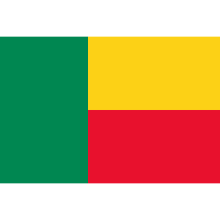 The Government of BeninThe Government of Benin signed an agreement with African Parks in May 2017 to revitalise, rehabilitate and develop Pendjari National Park. In June 2020, W National Park was added to the African Parks portfolio. The restoration of these parks is one of 45 flagship projects of the “Revealing Benin” national investment programme, announced by the Presidency of the Republic of Benin in December 2016. The Minister of the Living Environment and Sustainable Development ministry (Ministère du Cadre de Vie et du Développement Durable), José Tonato, the Director General of the National Centre of Management of Reserves and Protected Areas (CENAGREF), Abdel Aziz Baba-Moussa, and the Managing Director of the National Agency for the Promotion of Heritage and the Development of Tourism, Edmond Toli, have all played an instrumental role in this partnership.
The Government of BeninThe Government of Benin signed an agreement with African Parks in May 2017 to revitalise, rehabilitate and develop Pendjari National Park. In June 2020, W National Park was added to the African Parks portfolio. The restoration of these parks is one of 45 flagship projects of the “Revealing Benin” national investment programme, announced by the Presidency of the Republic of Benin in December 2016. The Minister of the Living Environment and Sustainable Development ministry (Ministère du Cadre de Vie et du Développement Durable), José Tonato, the Director General of the National Centre of Management of Reserves and Protected Areas (CENAGREF), Abdel Aziz Baba-Moussa, and the Managing Director of the National Agency for the Promotion of Heritage and the Development of Tourism, Edmond Toli, have all played an instrumental role in this partnership. -
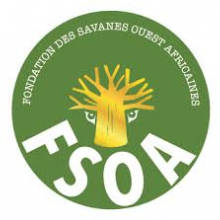 The Fondation des Savanes Ouest-Africaines (FSOA)The Fondation des Savanes Ouest-Africaines (FSOA) or West African Savannah Foundation, is a conservation trust fund promoting the preservation of protected areas of the W-Arly-Pendjari (WAP) Complex, while advancing education, science and local economic development. The Foundation was set up by the Beninese Government and IUCN with the financial contributions of Benin Government, Global Environment Facility (GEF) and Financial German Cooperation (Kreditanstalt für Wiederaufbau -KfW). The Foundation has been providing significant annual financial contribution to the successful management of the Pendjari National Park’s, since 2017. In 2019-2020, the FSOA provided 85% of funding to implement a Priority Action Plan to secure the Beninese W National Park, which evolved into a full management mandate to APN, in June 2020. The Foundation also committed promptly to cover fully funding needs to establish the first 3-months plan from the APN Mandate for APN management of Park W-Benin, up to December 2020. Its larger vision is to create a sustainable source of funding and support synergy of actions within the W-Arly-Pendjari Complex.
The Fondation des Savanes Ouest-Africaines (FSOA)The Fondation des Savanes Ouest-Africaines (FSOA) or West African Savannah Foundation, is a conservation trust fund promoting the preservation of protected areas of the W-Arly-Pendjari (WAP) Complex, while advancing education, science and local economic development. The Foundation was set up by the Beninese Government and IUCN with the financial contributions of Benin Government, Global Environment Facility (GEF) and Financial German Cooperation (Kreditanstalt für Wiederaufbau -KfW). The Foundation has been providing significant annual financial contribution to the successful management of the Pendjari National Park’s, since 2017. In 2019-2020, the FSOA provided 85% of funding to implement a Priority Action Plan to secure the Beninese W National Park, which evolved into a full management mandate to APN, in June 2020. The Foundation also committed promptly to cover fully funding needs to establish the first 3-months plan from the APN Mandate for APN management of Park W-Benin, up to December 2020. Its larger vision is to create a sustainable source of funding and support synergy of actions within the W-Arly-Pendjari Complex. -
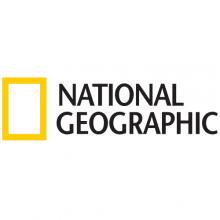 The National Geographic SocietyThe National Geographic Society uses the power of science, exploration, education and storytelling to illuminate and protect the wonder of our world. Pendjari National Park in Benin is supported by the Society’s Last Wild Places initiative. Since 2018, the Society has been supporting Pendjari National Park with a five-year multimillion-dollar grant in partnership with The Wyss Foundation and the Government of Benin
The National Geographic SocietyThe National Geographic Society uses the power of science, exploration, education and storytelling to illuminate and protect the wonder of our world. Pendjari National Park in Benin is supported by the Society’s Last Wild Places initiative. Since 2018, the Society has been supporting Pendjari National Park with a five-year multimillion-dollar grant in partnership with The Wyss Foundation and the Government of Benin -
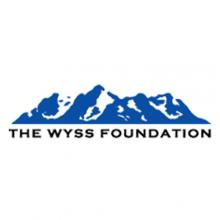 The Wyss FoundationThe Wyss Foundation is a private charitable foundation dedicated to supporting innovative, lasting solutions that improve lives, empower communities and strengthen connections to the land. The relationship with African Parks began in 2015 with a grant to support the restoration of Akagera National Park followed by a significant investment in Liwonde National Park and Nkhotakota Wildlife Reserve, both in Malawi. In 2017, The Wyss Foundation made a ground-breaking commitment of US$65 million to provide on-going support for Akagera and the Malawi Parks along with start-up funding for five new parks. This enabled the addition of Pendjari and W National Parks in Benin, Bazaruto Archipelago National Park in Mozambique, Iona National Park in Angola, and Matusadona National Park in Zimbabwe.
The Wyss FoundationThe Wyss Foundation is a private charitable foundation dedicated to supporting innovative, lasting solutions that improve lives, empower communities and strengthen connections to the land. The relationship with African Parks began in 2015 with a grant to support the restoration of Akagera National Park followed by a significant investment in Liwonde National Park and Nkhotakota Wildlife Reserve, both in Malawi. In 2017, The Wyss Foundation made a ground-breaking commitment of US$65 million to provide on-going support for Akagera and the Malawi Parks along with start-up funding for five new parks. This enabled the addition of Pendjari and W National Parks in Benin, Bazaruto Archipelago National Park in Mozambique, Iona National Park in Angola, and Matusadona National Park in Zimbabwe. -
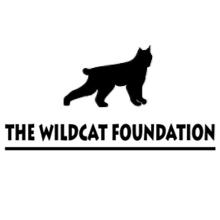 The Wildcat FoundationThe Wildcat Foundation is a private philanthropic foundation whose purpose is to help save and provide for the long-term conservation of endangered wildlife and wild places in Africa. It supports innovative new approaches that disrupt traditional wildlife protection paradigms, focusing largely on medical training, aircraft, equipment and technology for Rangers. The Wildcat Foundation first partnered with African Parks in 2014, supporting the historic 500-elephant move in Malawi. Over the years, Wildcat has invested in seven parks across six countries. Wildcat has been instrumental in assisting with the development and implementation a new law enforcement strategy at Garamba National Park, which has resulted in a 95% reduction in elephant poaching.
The Wildcat FoundationThe Wildcat Foundation is a private philanthropic foundation whose purpose is to help save and provide for the long-term conservation of endangered wildlife and wild places in Africa. It supports innovative new approaches that disrupt traditional wildlife protection paradigms, focusing largely on medical training, aircraft, equipment and technology for Rangers. The Wildcat Foundation first partnered with African Parks in 2014, supporting the historic 500-elephant move in Malawi. Over the years, Wildcat has invested in seven parks across six countries. Wildcat has been instrumental in assisting with the development and implementation a new law enforcement strategy at Garamba National Park, which has resulted in a 95% reduction in elephant poaching. -
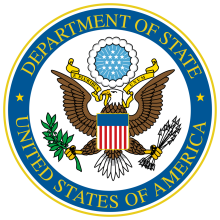 The U.S. Department of StateThe United States Department of State, through the Bureau of International Narcotics and Law Enforcement Affairs (INL), advances good governance, peace and security, which are prerequisites for sustainable economic development and the protection of natural resources. Since 2017, the INL has committed over US$9m to African Parks for critical law enforcement support in protected areas particularly in Chad, the DRC, Malawi, Zambia, the Republic of Congo and Benin. This support has focused on provision of ranger uniforms and patrol equipment, therefore motivating and increasing their efficiency, professionalization of law enforcement operations through refinement of law enforcement standard operating procedures, leadership development, human rights and other core training infrastructure. Intelligence units have been established to guide law enforcement operations and for more robust collaboration with national and regional security agencies, and conservation partners. INL also supports technology development, communication and information management, air surveillance, mobility equipment and canine units, as well as training of national government institutions such as the judiciary to enhance wildlife crime prosecution. Finally, INL is supporting the refinement of the organization’s Human Rights Statement of Principles, to align with the national laws of various governments, refinement of the training curriculum and training of law enforcement teams across the AP portfolio of parks on human rights to minimize violations. These interventions have strengthened parks’ capacity to counter poaching and illegal wildlife trade in these protected areas while promoting regional stability and the security of neighbouring communities. In 2023, INL has awarded AP an additional $2.8m to cover similar interventions in Odzala-Kokoua National Park in ROC, Pendjari National Park and W National Park in Benin, and the Greater Zakouma Ecosystem in Chad, over a period of two years.
The U.S. Department of StateThe United States Department of State, through the Bureau of International Narcotics and Law Enforcement Affairs (INL), advances good governance, peace and security, which are prerequisites for sustainable economic development and the protection of natural resources. Since 2017, the INL has committed over US$9m to African Parks for critical law enforcement support in protected areas particularly in Chad, the DRC, Malawi, Zambia, the Republic of Congo and Benin. This support has focused on provision of ranger uniforms and patrol equipment, therefore motivating and increasing their efficiency, professionalization of law enforcement operations through refinement of law enforcement standard operating procedures, leadership development, human rights and other core training infrastructure. Intelligence units have been established to guide law enforcement operations and for more robust collaboration with national and regional security agencies, and conservation partners. INL also supports technology development, communication and information management, air surveillance, mobility equipment and canine units, as well as training of national government institutions such as the judiciary to enhance wildlife crime prosecution. Finally, INL is supporting the refinement of the organization’s Human Rights Statement of Principles, to align with the national laws of various governments, refinement of the training curriculum and training of law enforcement teams across the AP portfolio of parks on human rights to minimize violations. These interventions have strengthened parks’ capacity to counter poaching and illegal wildlife trade in these protected areas while promoting regional stability and the security of neighbouring communities. In 2023, INL has awarded AP an additional $2.8m to cover similar interventions in Odzala-Kokoua National Park in ROC, Pendjari National Park and W National Park in Benin, and the Greater Zakouma Ecosystem in Chad, over a period of two years.
